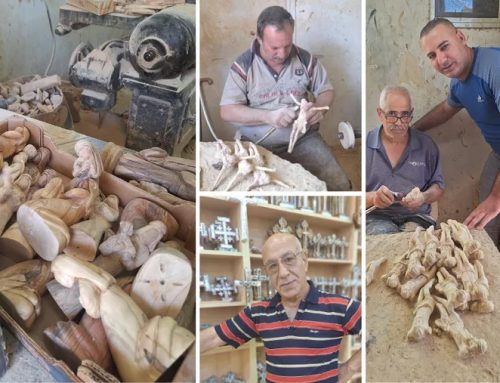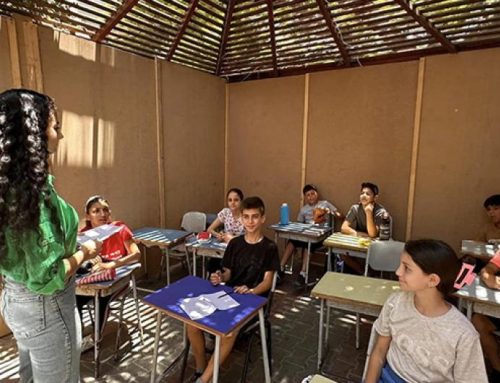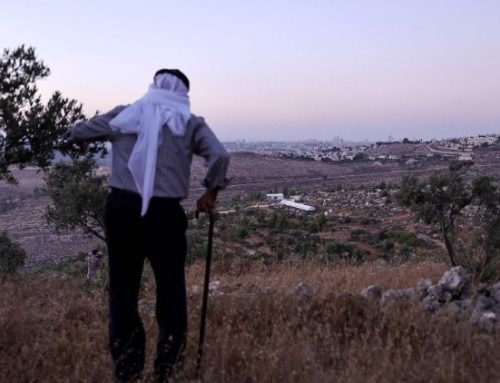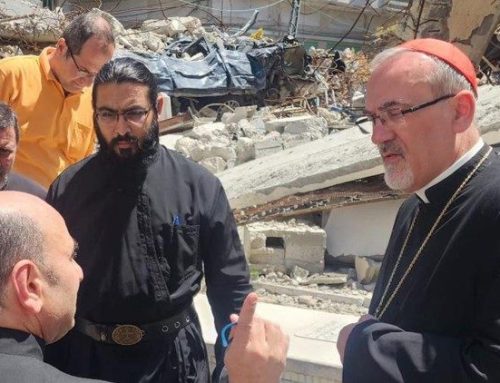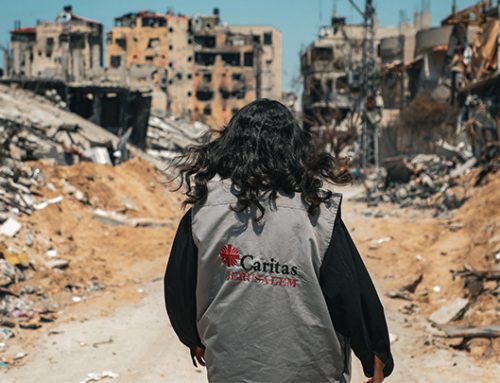Ekklesia
by ENI
Pope Benedict XVI has spoken out in favour of Palestinian sovereignty in an address in Bethlehem during his pilgrimage to the Holy Land.
“I know how much you
“The Holy See supports the right of your people to a sovereign Palestinian homeland in the land of your forefathers, secure and at peace with its neighbours, within internationally recognised borders.”
The pontiff expressed the hope that the “international community” would help Palestinians to reconstruct “homes, schools or hospitals that have been damaged or destroyed, especially during the recent fighting in Gaza”.
He was on the third leg of his first visit to the Holy Land as leader of the Roman Catholic Church, after Jordan and Israel. The 82 year-old Pope arrived in this city, which Christians revere as the birthplace of Jesus, from Jerusalem.
Benedict entered the Palestinian territory after crossing a checkpoint at the security barrier loathed by Palestinians for stealing parts of their land and hindering their access to Jerusalem and other areas, but which Israel says is needed to prevent attacks by suicide bombers.
The President of the Palestinian Authority, Mahmoud Abbas had welcomed the Pope, saying, “Your Holiness is fully aware of the situation in Jerusalem, which is surrounded by the apartheid wall, which forbids our people from the West Bank to reach the Church of the Holy Sepulchre or the Al Aqsa Mosque.
“All types of oppression, tyranny, and land exportation are being exercised against all Arab citizens, both Muslims and Christians,” the Palestinian president said, adding that his people want to conclude a peace “based on a two-State solution, a Palestinian State next to the Israeli one, living side by side in all security and stability”.
After concluding his speech, the Pope went to Manger Square, to celebrate Mass on an altar built in an open space flanked at opposite ends by the Basilica of the Nativity and the Mosque of Omar.
In front of the altar hung a giant Palestinian flag and a large photograph of the Pope with Abbas., In all the corners Palestinian and Vatican flags flew. The square was packed with priests, nuns, men, women and young people. Some of those present said that some of the few hundred Catholics who live in Gaza had not been allowed to reach Bethlehem.
The Pope spoke of his joy at being in the city where Jesus was born and he told the crowd, “Don’t be afraid! This is the message which the successor of Saint Peter wishes to leave with you today, echoing the message of the angels. Count on the prayers and solidarity of your brothers and sisters in the universal Church.”
The pontiff added, “Be a bridge of dialogue and constructive cooperation in the building of a culture of peace to replace the present stalemate of fear, aggression and frustration.”
Later the Pope visited the Aida refugee camp near Bethlehem. In a speech there, referring to the security barrier Israel has erected, Benedict said, “Towering over us is a stark reminder of the stalemate that relations between Israelis and Palestinians seem to have reached – the wall.”

